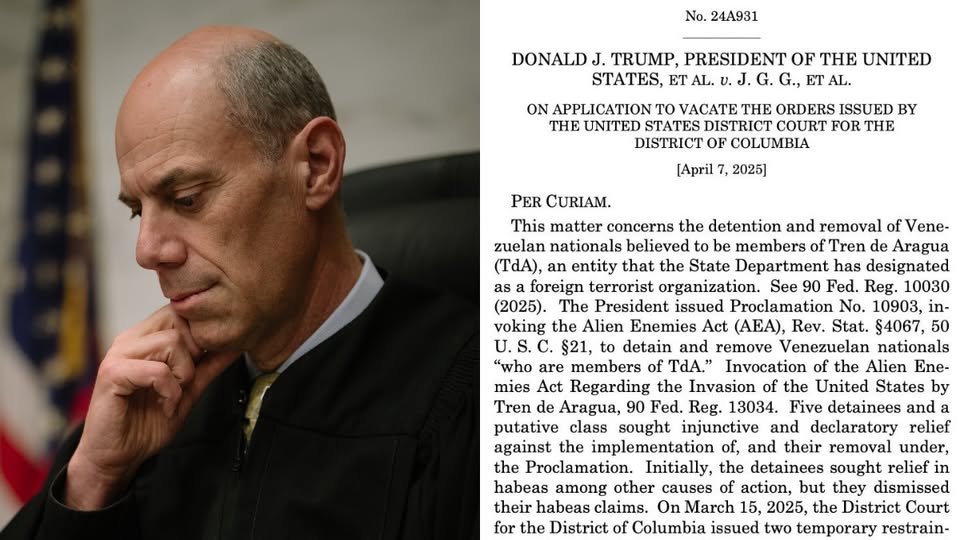In a landmark decision on April 7, 2025, the U.S. Supreme Court ruled in favor of President Donald J. Trump, affirming his authority to invoke the Alien Enemies Act (AEA) to detain and deport Venezuelan nationals linked to the Tren de Aragua (TdA) gang. The case, Donald J. Trump, President of the United States, et al., v. J. G., G., et al., has sparked intense debate over immigration policy and national security.
The controversy stems from the administration’s designation of TdA as a foreign terrorist organization, a move grounded in 50 Fed. Reg. 10030 (2025). The President’s proclamation, issued under the AEA (50 U.S.C. § 21), identified TdA members as a threat, citing their involvement in violent crimes across the U.S. The policy, detailed in 90 Fed. Reg. 13034, authorized the detention of 4067 Venezuelan nationals and the removal of 521 others deemed “who are members of TdA.” Additionally, the administration sought to bar these individuals from re-entering the U.S. under the AEA’s provisions.
The District Court for the District of Columbia initially granted temporary relief to the detainees in March 2025, arguing that the government’s actions violated habeas corpus rights. However, the Supreme Court’s per curiam opinion overturned this, stating that the AEA grants the President broad authority to act against foreign nationals during times of “invasion” or “predatory incursion.” The Court acknowledged the detainees’ right to seek relief but found their claims insufficient to override national security concerns.
This ruling marks a significant victory for the Trump administration, which has prioritized stringent immigration measures since taking office. The decision aligns with broader policies, including Trump’s designation of drug cartels as terrorist organizations and his push to block asylum claims at the border. Critics argue the move disproportionately targets Venezuelan migrants fleeing political and economic turmoil, potentially setting a dangerous precedent for executive overreach. Immigrant rights groups have vowed to continue the fight, citing humanitarian concerns.
Supporters, however, see this as a necessary step to curb transnational crime. The administration, backed by figures like Elon Musk, who has advised on security policies, frames TdA as a growing threat to American safety. With over 70 executive orders signed in his first month, Trump’s aggressive stance on immigration shows no signs of slowing.
The ruling has far-reaching implications for U.S. immigration law and the balance of power between the executive and judicial branches. As the debate rages on, the fate of thousands of Venezuelan migrants hangs in the balance, with the nation watching closely.


